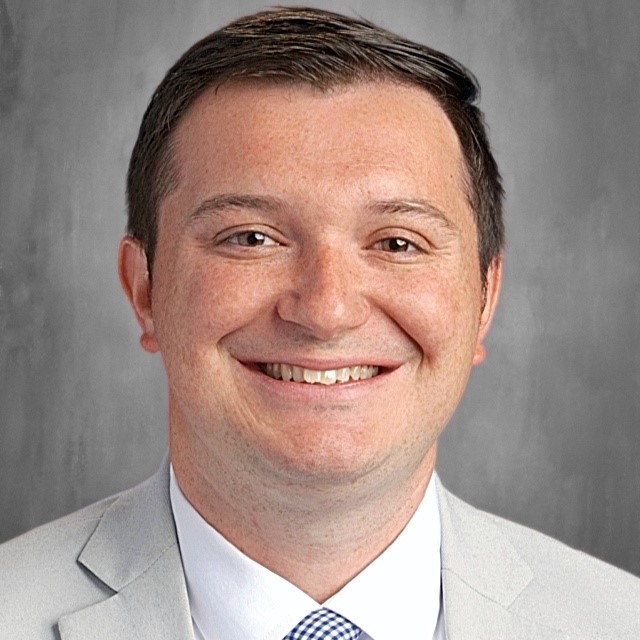Bachelor of Arts in Christian Music Education
Music Education Requirements
Program Objectives
In keeping with the Institutional Goals, the Christian Music Education Program is designed specifically:
1. To help the student to create a philosophy of music that is founded on Biblical principles.
2. To enable the student to articulate a biblical philosophy of music ministry and demonstrate the musical and leadership abilities requisite for music ministry.
3. To enable the student to effectively teach music at the elementary, middle, and high school level by selecting appropriate materials and music, planning course outcomes and activities, presenting course content, and evaluating course outcomes.
4. To enable the student to accurately read, analyze, and create music.
5. To enable the student to achieve appropriate proficiency on their major and minor instruments and demonstrate the ability to teach piano or voice effectively in a private lesson setting.
Applied Major/Minor
The student must prepare for an audition in their major instrument to present before the Music Faculty before entering into this program. The Christian Music Education Major must demonstrate superior ability in one area of music performance and will take instruction in this field every semester. This performance proficiency may be Voice, Piano, Organ, or one of the Standard Orchestral Instruments. Vocalists and instrumentalists must elect piano as their applied minor until they are able to pass the secondary piano examination. A public recital must be given during the senior year.
Course Requirements are as follows (Total 136 credits):
General Education, 40 credits:
| PT | 101 | College Study Skills | 1 credit |
| LL | 111 | English Composition I | 3 credits |
| LL | 112 | English Composition II | 3 credits |
| NS | 112 | Biological Science Survey | 3 credits |
| PS | 131 | General Psychology | 3 credits |
| LL | 211 | Speech Communication | 3 credits |
| PR | 211 | Introduction to Philosophy | 3 credits |
| MU | 231 | Introduction to Music Literature | 3 credits |
| MU | 271 | Hymnology | 2 credits |
| MU | 321 | Music History I | 3 credits |
| MU | 322 | Music History II | 3 credits |
| History Elective | 3 credits | ||
| Selected from SS 111 History of Civilization I, SS 112 History of Civiliation II, CH 341 Church History I, or Ch 342 Church History II. | |||
| LL | ––– | Literature Elective | 3 credits |
| Selected from LL 231 American Literature I, LL 232 American Literature II, LL 311 English Literature I, or LL 312 English Literature II. | |||
| MU | 2–– | Music Organization | 1 credit |
| Selected from MU 200 Choir or MU 220 Instrumental Ensemble. | |||
Bible/Theology, 30 credits:
| BI | 111 | Old Testament Survey | 3 credits |
| BI | 112 | New Testament Survey | 3 credits |
| BI | 121 | Gospels I | 3 credits |
| BI | 122 | Gospels II | 3 credits |
| BI | 212 | Acts | 3 credits |
| BI | 221 | Pentateuch I (Genesis) | 3 credits |
| TH | 221 | Christian Beliefs | 3 credits |
| TH | 222 | Theology of Holiness | 3 credits |
| MU | 272 | Music in the Bible | 3 credits |
| BI | 412 | Romans | 3 credits |
Professional Education, 66 credits:
| MU | 112 | Music Theory I | 3 credits |
| MU | 211 | Music Theory II | 3 credits |
| MU | 212 | Music Theory III | 3 credits |
| MU | 221 | Music Theory IV | 3 credits |
| ED | 212 | Introduction to Christian Education | 3 credits |
| MU | 261 | Principles of Conducting | 2 credits |
| MU | 262 | Advanced Conducting | 2 credits |
| MU | 332 | Choral Methods | 3 credits |
| MU | 361 | Percussion & Brass Pedagogy | 3 credits |
| MU | 362 | String & Woodwind Pedagogy | 3 credits |
| MU | ––– | Pedagogy | 3 credits |
|
Voice Majors: MU 331 Voice Pedagogy & Literature Piano Majors: MU 431 Piano Pedagogy & Literature Other Majors may choose either the Piano or Voice Pedagogy. The Pedagogies must be related to the Minor instruments. |
|||
| MU | 371 | Teaching Elementary Music | 3 credits |
| MU | 372 | Teaching Junior High & High School Music | 3 credits |
| MU | 411 | Church Music Administration | 3 credits |
| MU | 1–– | Applied Major | 9 credits |
| Selected from MU 121 Applied Voice, MU 131 Applied Piano, or MU 141 Applied Orchestral Instruments. | |||
| MU | 1–– | Applied Minor | 4 credits |
| Selected from MU 121 Applied Voice, MU 131 Applied Piano, or MU 141 Applied Orchestral Instruments. | |||
| MU | 2–– | Music Organization | 5 credits |
| Selected from MU 200 Choir or MU 220 Instrumental Ensemble. | |||
| MU | 481 | Music Student Teaching | 8 credits |
| MU | 491 | Music Recital | 0 credits |
A student must pass the theory entrance exam or make up the deficiency in course MU 100 Elements of Music. MU 100 is not applicable toward the Advanced Diploma in Music.
Music students are required to be involved in a Music Organization or special assignment every semester they are on the Music Program. Placement will be determined by the Music Director.
Normally, MU 481 Music Student Teaching (8 credits) is taken the Fall term after the fourth year.
Suggested Schedule
(beginning even-numbered fall)



